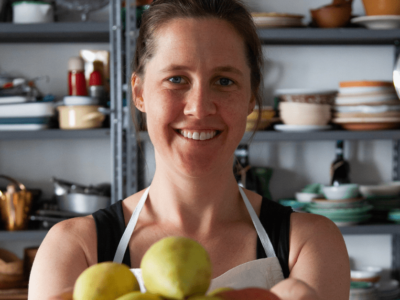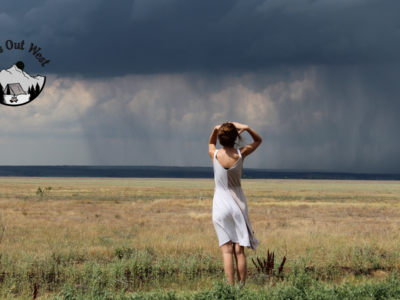In the middle of my husband’s sixth or seventh season on the road for work (there were so many that I lost count), I wondered if this was it, the end of our marriage. Nothing terrible had happened. No one slapped the other. No one cheated. As I walked along the shore of Lake Michigan with a friend, I kicked at the pebbled beach and lamented, “He used to care when I was upset. Now, it’s as if he doesn’t even care anymore.”
Worse than my longing, worse than his long-distance trips for work was the apathy I felt spreading through our marriage as we co-parented our children, him with them during the weekdays while I worked, me with them in the evenings and weekends while he worked.
“I still love him,” I said, “but I don’t really like him anymore.”
When he was gone, I remembered the core goodness about my husband, his laughter, the light in his eyes, his ceaseless care and the safety I felt in his presence. In his absence, I longed for the real husband I knew and loved to walk through the door. But often, when the door opened and he came home, finally, home, it was his shadow self that walked in, distant, angry, irritable, impatient.
“I don’t know if we’re going to make it,” I told my friend. I didn’t even have a lump in my throat when I said it.
That was the last season my husband traveled out of state for work every weekend, his “farewell tour” as he called it, the known and planned end to the career he had been building and investing in for most of our marriage. Every weekend trip was the last time he’d be in that city for work, the last time he’d be traveling with his colleagues who had become some of his best friends, the other family he lived with 3.5 days out of the week. We may have decided together that it was time for the traveling to end or risk the end of our marriage, but bundled within that decision was this question: If this is the end of this career, what comes next?
While he walked alone through the last year of traveling for work, I walked alone on a cold, fall shore. I daydreamed about apartments nearer to my work. I imagined life separate but still inextricably connected by our three children we had tried so hard to have together.
But in the quietest, most desperate moments, I heard this voice, “Shhh. Be patient. Love is patient.”
I didn’t understand what my husband was going through that fall. On the other side of that anger and bitterness was a deeper well of grief and uncertainty. I couldn’t meet him in that space.
Several years earlier, I had walked alone through a dark season of temptation, navigating my own desires and longings alongside the aggressive flirting of a colleague whose own marriage was crumbling. My husband couldn’t meet me in that space, either, not because he didn’t want to step into that struggle, but because I hadn’t let him in. I walked alone because I was afraid. Perhaps that’s why he walked alone, too, because he was afraid of what would come next, afraid of uncertainty, afraid of failure.
In the dark spaces of our marriage, the greatest challenges we’ve had to overcome required abandoning fear and risking rejection to confess the reality dwelling in our hearts. This vulnerability is the price you pay to keep the tenuous braid of marriage together.
If you’re both trying to walk in the same direction, toward love, then, “Shhh, be patient. Love is patient.” It’s this quality of love that carries you through those seasons when you still love each other, but maybe you don’t like each other very much. It’s this long suffering love that eventually draws you in again, strips back the layers of protection, and reveals the soul you fell in love with in the first place, refined and more complete, more complex than what you even knew in seasons before.
My memoir, American Honey: A Field Guide to Resisting Temptation is about the season before my long walk on the beach, wondering whether we’d make it. It wrestles with attraction, how we’re made and what shapes us to be able to resist temptation or to give in to the seductive charm of attention, no matter what form it comes in. It’s a particular kind of love story, the kind of love that walks through the valleys and even will hold you during the storm, if you let it. It’s a memoir of the first ten years of our marriage, the sticky, complicated, and painful parts as well as the hilarious, embarrassing, and sexy parts. It’s a love story that is not exactly “happily ever after,” but rather “to be continued.”
Long suffering love, patient love, is the kind of love that gives you reason to hope.





 Copyright
2024
Root and Vine
Copyright
2024
Root and Vine